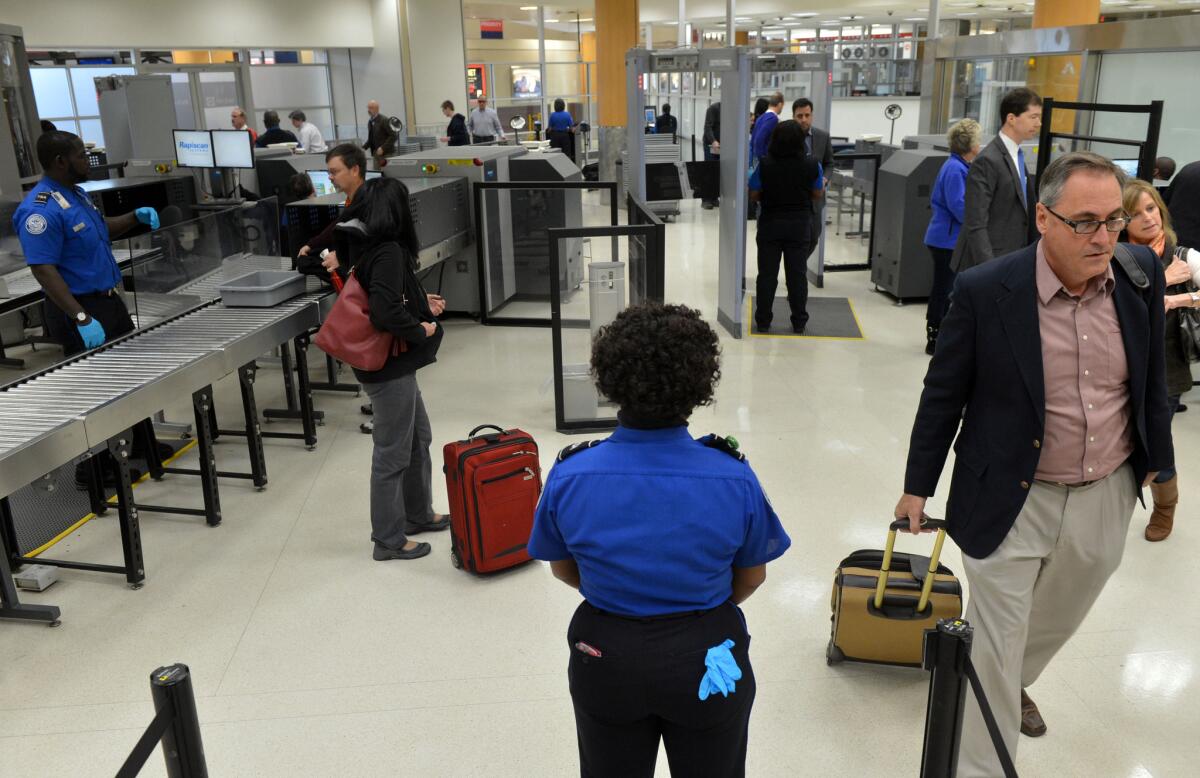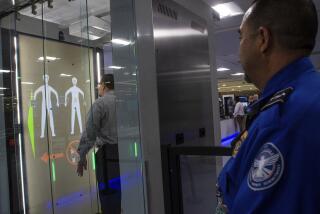New airport screening technology targets you while you’re on the go

- Share via
In the near future, airline passengers may be screened for weapons without having to stop walking or to remove their coats and shoes.
The U.S. Department of Homeland Security is pushing for private contractors to come up with a screening machine with “screen-and-walk” capability for use at the nation’s 160 airports and thousands of federal facilities.
The agency recently requested information from high-tech companies and other private firms about any new technology that can help speed up the security checkpoints managed by the Transportation Security Administration and the Federal Protective Service.
In the request, the Department of Homeland Security asked for technology that can screen a minimum of 250 people per hour, which is slightly faster than the current pace of about 200 per hour for the full-body scanners. The new technology would not replace, but would add to, the screening technology now used at airports.
“The system will detect an explosive or assembled [improvised explosive devices] with and without divestiture of outer garments, shoes and through clutter depending on the deployment,” according to the government request. “In addition, detection should occur through a minimum of 2 layers of clothing concealment where those layers are composed of cotton, cotton-polyester, wool, silk and leather materials among others.”
The federal agency asked for a response by March 11.
The TSA has been under pressure from travelers and airlines to speed up the screening process, which Americans rank as one of the top sources of frustration when they travel.
In a statement, the TSA said it “is always looking for new technology and procedures that will enhance security and increase efficiency.”
ALSO:
Airlines approve first fare hike of 2014
United Airlines’ computers go on the fritz -- again
Homeland Security chief plays down latest shoe bomb warning
More to Read
Inside the business of entertainment
The Wide Shot brings you news, analysis and insights on everything from streaming wars to production — and what it all means for the future.
You may occasionally receive promotional content from the Los Angeles Times.











